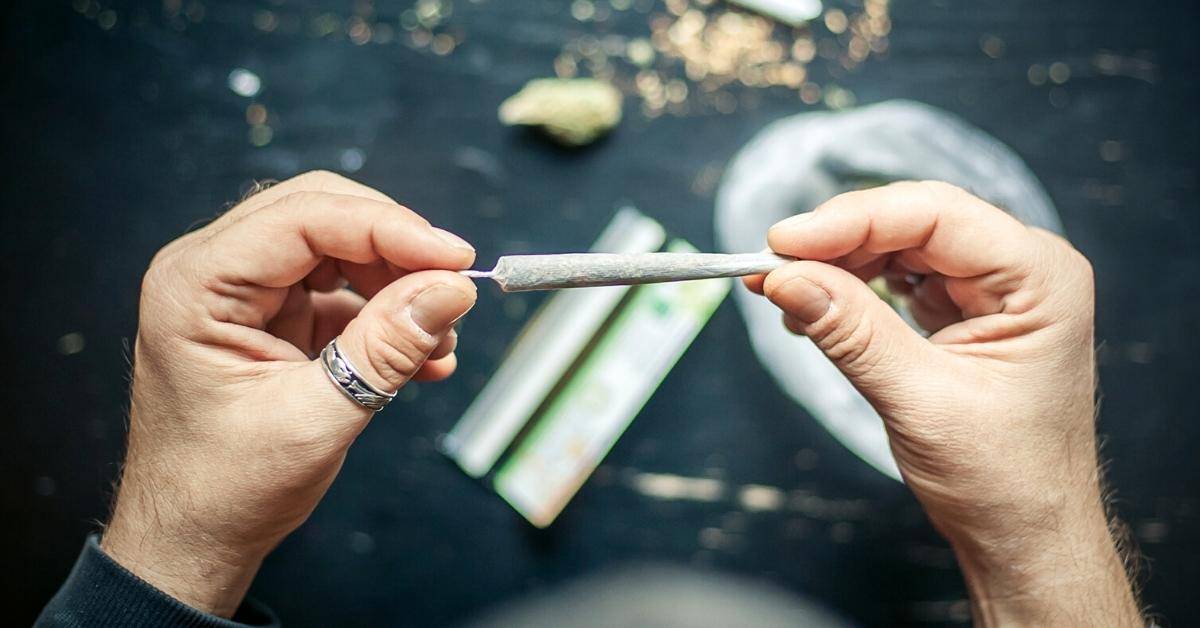Many people automatically associate driving while intoxicated (DWI) arrests with alcohol consumption, but the truth is that law enforcement officers in Texas are authorized to arrest drivers for being under the influence of many other kinds of drugs. One of the most common kinds of drugs that people can be accused of being under the influence of is marijuana, and authorities will often draw conclusions based upon circumstantial evidence such as the odor of marijuana in a car.
Being under the influence of marijuana is not the same as being under the influence of alcohol, so police officers often must rely on blood tests rather than the breath tests that are commonly utilized during most roadside DWI tests. Blood test results can take some time to come back, and there can be many issues when a person tests positive for marijuana because the drug typically stays in a person’s system for several weeks after original use.
Marijuana and DWI Defense Lawyer in Denton, Frisco, Lewisville, Flower Mound, TX
If you were arrested for an alleged DWI offense involving marijuana in Flower Mound, Denton, Lewisville, or another community in Denton County, it will be important for you to get an experienced criminal defense attorney on your side. You will want to be sure you speak with The Law Offices of Richard C. McConathy.
Our firm has spent more than two decades defending people all over North Texas against all kinds of DWI charges and we will be able to work to make sure that you face the fewest penalties possible. We will be able to discuss your case in greater detail when you call (940) 222-8004 or contact us online right now to schedule a free consultation.
Marijuana and DWI Charges in Denton County
Under Texas Penal Code § 49.04, a person commits DWI if the person is intoxicated while operating a motor vehicle in a public place. Texas Penal Code § 49.01(2) defines intoxicated as meaning either or having an alcohol concentration of 0.08, or not having the normal use of mental or physical faculties by reason of the introduction of alcohol, a controlled substance, a drug, a dangerous drug, a combination of two or more of those substances, or any other substance into the body.
A controlled substance is defined in the Texas Controlled Substances Act as a substance, including a drug, an adulterant, and a dilutant, listed in Schedules I through V or Penalty Group 1, 1-A, 2, 2-A, 3, or 4. The term includes the aggregate weight of any mixture, solution, or other substance containing a controlled substance, but does not include hemp or the tetrahydrocannabinols in hemp.
Marijuana (referred to in the Texas Health and Safety Code as “marihuana”) is not in any of the Drug Penalty Groups but is criminalized throughout the Texas Health and Safety Code. Marijuana is defined under Texas Health and Safety Code § 481.002 as the plant Cannabis sativa L., whether growing or not, the seeds of that plant, and every compound, manufacture, salt, derivative, mixture, or preparation of that plant or its seeds.
Marijuana does not include:
- the resin extracted from a part of the plant or a compound, manufacture, salt, derivative, mixture, or preparation of the resin;
- the mature stalks of the plant or fiber produced from the stalks;
- oil or cake made from the seeds of the plant;
- a compound, manufacture, salt, derivative, mixture, or preparation of the mature stalks, fiber, oil, or cake;
- the sterilized seeds of the plant that are incapable of beginning germination; or
- hemp, as that term is defined by Section 121.001, Agriculture Code.
Texas Transportation Code § 724.011 establishes that when a person is arrested for an offense arising out of acts alleged to have been committed while the person was operating a motor vehicle in a public place, or a watercraft, while intoxicated, they are deemed to have consented to submit to the taking of one or more specimens of the person’s breath or blood for analysis to determine the alcohol concentration or the presence in the person’s body of a controlled substance, drug, dangerous drug, or other substance. While alcohol can be tested using roadside tests such as breathalyzers, drugs usually must be tested through blood tests that are often performed at police stations.

Under Texas Transportation Code § 724.017, only the following individuals can take a blood specimen at the request or order of a peace officer:
- a physician;
- a qualified technician;
- a registered professional nurse;
- a licensed vocational nurse; or
- a licensed or certified emergency medical technician-intermediate or emergency medical technician-paramedic authorized to take a blood specimen.
A blood specimen must be taken in a sanitary place. A licensed or certified emergency medical technician-intermediate or emergency medical technician-paramedic may take a blood specimen only if authorized by the medical director for the entity that employs the technician-intermediate or technician-paramedic.
The specimen must be taken according to a protocol developed by the medical director that provides direction to the technician-intermediate or technician-paramedic for the taking of a blood specimen at the request or order of a peace officer. In this subsection, “medical director” means a licensed physician who supervises the provision of emergency medical services by a public or private entity that provides those services and employs one or more licensed or certified emergency medical technician-intermediates or emergency medical technician-paramedics.
The protocol developed can address whether an emergency medical technician-intermediate or emergency medical technician-paramedic engaged in the performance of official duties is entitled to refuse to:
- go to the location of a person from whom a peace officer requests or orders the taking of a blood specimen solely for the purpose of taking that blood specimen;
- take a blood specimen if the technician-intermediate or technician-paramedic reasonably believes that complying with the peace officer’s request or order to take the specimen would impair or interfere with the provision of patient care or the performance of other official duties; or
- provide the equipment or supplies necessary to take a blood specimen.
If a licensed or certified emergency medical technician-intermediate or emergency medical technician-paramedic takes a blood specimen at the request or order of a peace officer, a peace officer must observe the taking of the specimen and immediately take possession of the specimen for purposes of establishing a chain of custody.
Texas Transportation Code § 724.019 establishes that a person who submits to the taking of a specimen of breath, blood, urine, or another bodily substance at the request or order of a peace officer may, on request and within a reasonable time not to exceed two hours after the arrest, have a physician, qualified technician, chemist, or registered professional nurse selected by the person take for analysis an additional specimen of the person’s blood.
The person shall be allowed a reasonable opportunity to contact a person specified by Texas Transportation Code § 724.019(a). A peace officer or law enforcement agency is not required to transport for testing a person who requests that a blood specimen be taken.
The failure or inability to obtain an additional specimen or analysis does not preclude the admission of evidence relating to the analysis of the specimen taken at the request or order of the peace officer. A peace officer, another person acting for or on behalf of the state, or a law enforcement agency is not liable for damages arising from a person’s request to have a blood specimen taken.
Texas has no legal limit for the amount of marijuana that a person can have in their system. As a result, many DWI charges based on marijuana are simply just positive drug tests.
Marijuana can stay in a person’s system for as many as 30 days for urine tests although the period is shorter for blood tests. One of the immediate defenses to many under the influence of marijuana charges is to question when the marijuana was actually consumed and challenge the validity of any drug test.
Marijuana and DWI Penalties in Texas
Generally, a first-time DWI involving marijuana will be a Class B misdemeanor. Convictions are punishable by up to 180 days in jail and a fine of up to $2,000.
Prior DWI offenses, however, can be used against an alleged offender even when the other offenses are alcohol-related. A marijuana DWI offense that is considered a second offense will be a Class A misdemeanor punishable by up to one year in jail and a fine of up to $4,000, and a third or subsequent offense is a third-degree felony punishable by up to 10 years in prison and a fine of up to $10,000.
Texas Penal Code § 49.10 states that in a prosecution under Texas Penal Code § 49.04 (DWI), or Texas Penal Code § 49.045 (DWI with child passenger), Texas Penal Code § 49.05 (flying while intoxicated), Texas Penal Code § 49.06 (boating while intoxicated), Texas Penal Code § 49.065 (assembling or operating an amusement ride while intoxicated), Texas Penal Code § 49.07 (intoxication assault), or Texas Penal Code § 49.08 (intoxication manslaughter), the fact that the alleged offender is or has been entitled to use the alcohol, controlled substance, drug, dangerous drug, or other substance is not a defense.
Denton, TX Marijuana and DWI Resources
Does marijuana use affect driving? | National Institute on Drug Abuse (NIDA) — View this section of the NIDA marijuana research report which states, “Marijuana significantly impairs judgment, motor coordination, and reaction time, and studies have found a direct relationship between blood THC concentration and impaired driving ability.” The page also points out “the role played by marijuana in crashes is often unclear because it can be detected in body fluids for days or even weeks after intoxication and because people frequently combine it with alcohol.” There are many other marijuana-related topics addressed on this website.
Marijuana Use and Driving – CDC — View a CDC document entitled, “What You Need to Know About Marijuana Use and Driving.” The document addresses ho marijuana affects driving, what is known about marijuana and car crashes, and what legal limits are for impairment. According to the CDC, the 13 percent of nighttime, weekend drivers who have marijuana in their system was an increase from 9 percent in 2007.5.
Find A Denton County Defense Attorney for Marijuana and DWI Charges | Law Offices of Richard C. McConathy
Were you recently arrested for a DWI offense involving marijuana in Denton or a surrounding area of Denton County? It will be critical for you to ensure that you have skilled legal representation.
You will want to contact The Law Offices of Richard C. McConathy as soon as possible. Call (940) 222-8004 or contact us online to have our firm review your case and help you understand all of your legal options during a free consultation.


